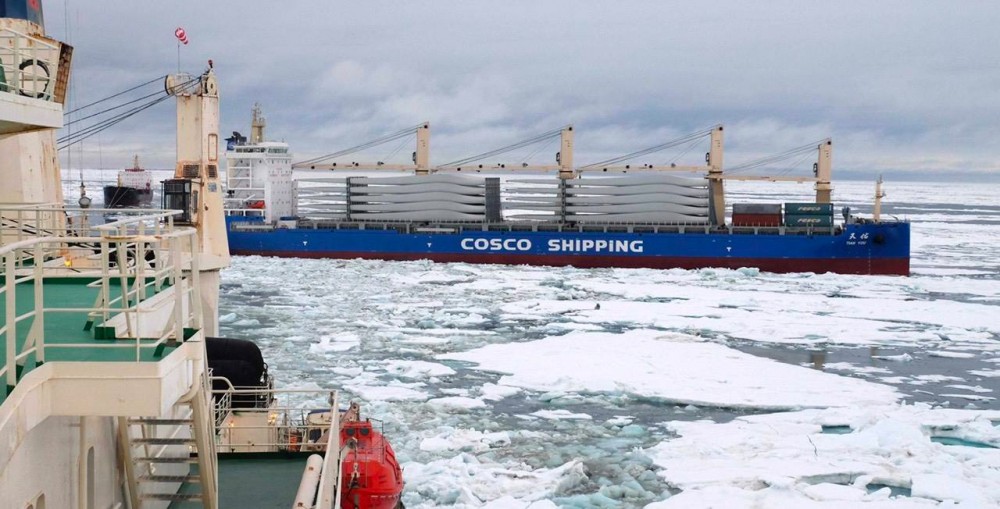Russia’s Northern Sea Route push is met with scepticism
The Northern Sea Route has some advantages over routes through the Suez Canal — but some big disadvantages, too.

a cargo ship along the Northern Sea Route. (Rosatom via The Independent Barents Observer)
After the Ever Given cargo ship ran aground in the Suez Canal, halting a significant amount of global marine traffic, the Arctic shipping route north of Russia gained increasing attention as alternative, with Moscow a top proponent.
The Northern Sea Route has one clear advantage over the Suez Canal. Shipping between East Asia and Europe is faster than on a route through the Suez Canal, because the distance is much shorter. But there are several big negatives overshadowing the route’s time advantage. Cost is the most reiterated argument against the NSR.
Currently, the cost of shipping along the NSR is approximately three times more expensive than that of transportation on a route through the Suez Canal. To counter this, Russian officials are trying increase the waterway’s popularity by artificially reducing its cost to shippers.
Yuri Trutnev, the Deputy Prime Minister of Russia, stated on the Northern Sea Route Telegram channel that the transportation of goods across the NSR should currently not be more expensive, and in the long term, be cheaper than transportation through the Suez Canal. To achieve this, Trutnev announced that Russia is willing to create a separate federal program and finance it to reduce the cost of delivery of goods through the Arctic.
However, another drawback may be more difficult to counter: the perception of environmental damage. Among those who have opposed the idea of the NSR’s growth is the Mediterranean Shipping Company. MSC has reemphasized its rejection of the NSR on the basis of environmental grounds. Increasing transportation through the Arctic risks big environmental damages including threats to biodiversity, the acceleration of melting ice and furtherance of global warming because of increased black carbon emissions and air pollution — not to mention the potential for a catastrophic oil spill. According to MSC’s CEO, Soren Toft, as a responsible and environmentally conscious company, the decision of rejecting the route as a potential was an obvious one, the Shipping and Logistics news-portal Ajot reported.
Finally, discouraging statistics of decreased transportation and navigation permits are a third strike the Russian government has to deal with. In the first three months of 2021, more than 7.5 million tons were transported along the NSR, which is 3.9 percent less than for the same period last year. Additionally, throughout January, February and March, only 56 navigation permits were issued for the water area of the NSR: 10 percent less than for the same period last year, PortsNews reported.
The combination of Russia’s economic compensations and the issues of the Evergreen accident make the Northern Sea Route seem like a potentially purposed and realistic proposition for now. However, how attractive of a transportation option the NSR will be in the long-term is highly contested and is yet to be seen.